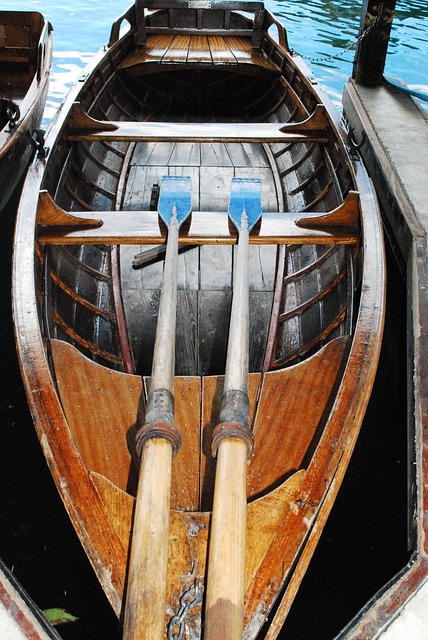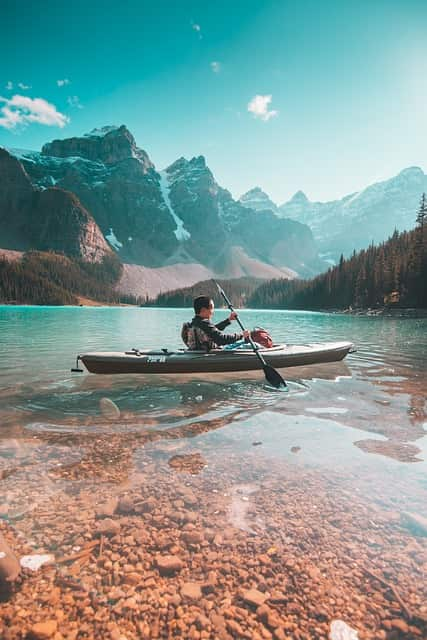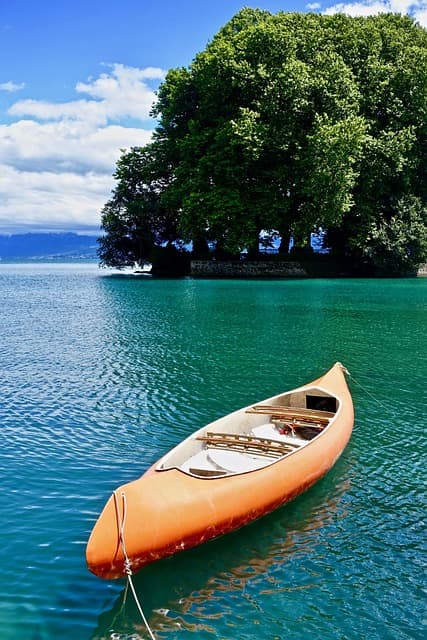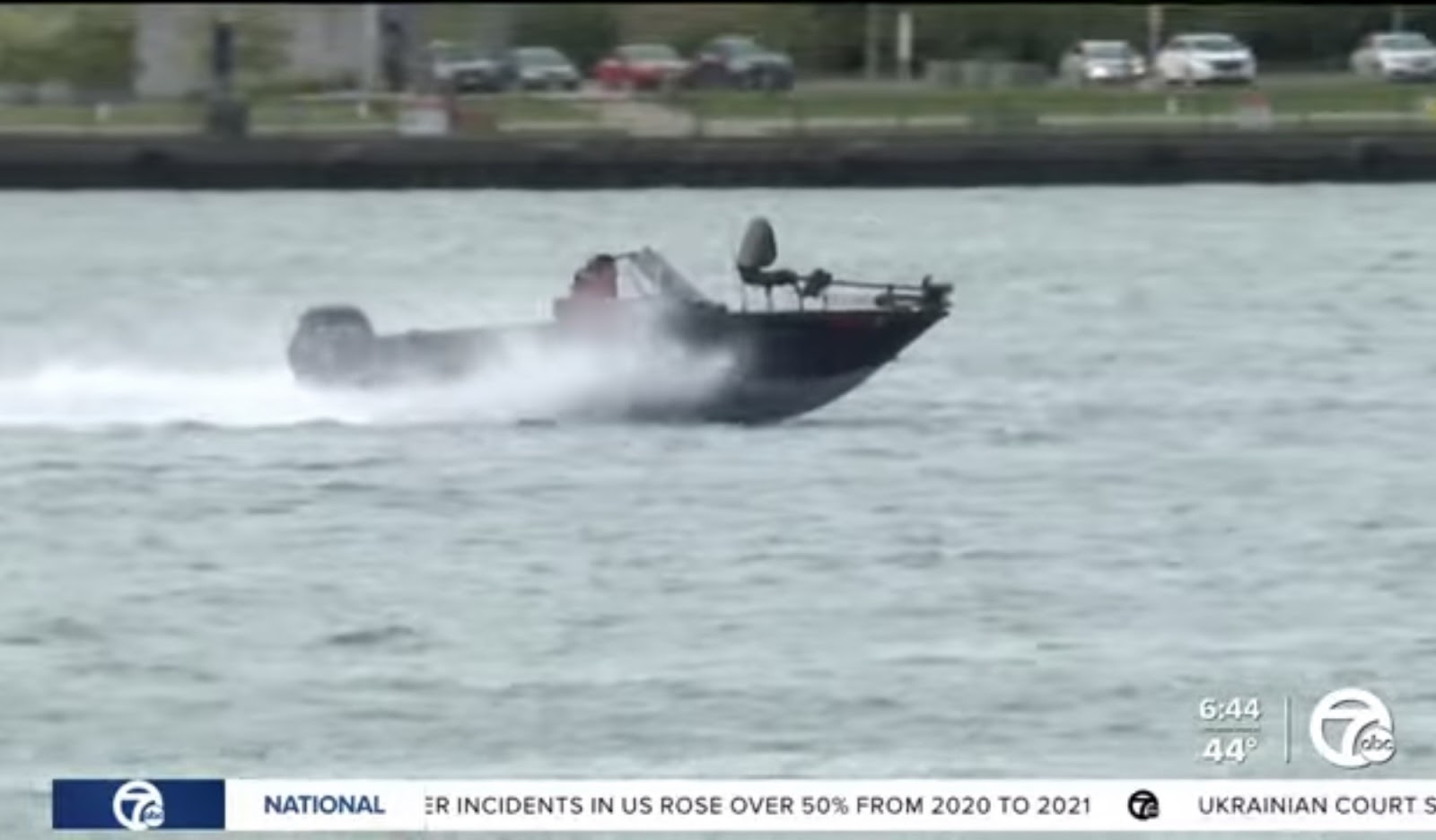Michigan’s governing bodies overseeing boating regulations and laws have embraced the concept of simplicity, realizing that fostering an environment where recreational water activities can flourish requires streamlined guidelines. This mindset is particularly evident in their approach towards non-motorized vessels within the state, such as canoes and kayaks. These vessels benefit from thoughtful exemptions from the burdensome process of registration, allowing enthusiasts to set out on Michigan’s pristine waters with minimal administrative encumbrances.
However, while the state respects the desire for unburdened exploration, it steadfastly places safety at the forefront of its priorities. The stipulation that every individual on board must be equipped with a life jacket underscores this commitment. Moreover, the mandatory inclusion of attention-grabbing devices, like whistles, ensures that boaters possess the means to signal for help in case of emergencies.
By coupling the freedom of registration exemptions with a robust emphasis on safety protocols, Michigan’s approach resonates with both leisurely paddlers and safety-conscious adventurers. This balance not only encourages the enjoyment of the state’s remarkable waterways but also creates an environment where everyone can feel secure while embracing the spirit of adventure on Michigan’s lakes and rivers.
The Enforcers: Michigan Department of Natural Resources
Entrusted with the responsibility of overseeing boating laws within the state, the Michigan Department of Natural Resources assumes a pivotal role in ensuring safe and responsible water activities. This department, with its extensive expertise and experience, stands as the guiding force behind the regulations that govern Michigan’s diverse waterways. From tranquil lakes to winding rivers, their influence permeates every corner of the state’s aquatic landscape.
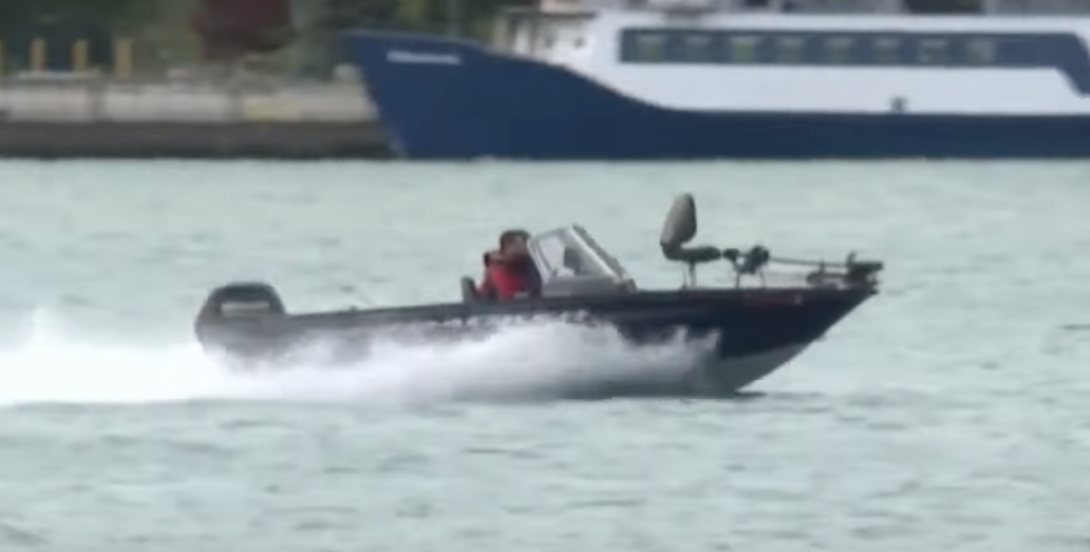
The Michigan Department of Natural Resources is committed to striking a harmonious balance between enabling recreational boating and safeguarding the integrity of these delicate ecosystems. Through their vigilant efforts, they not only enforce existing regulations but also work tirelessly to update and adapt guidelines as needed, ensuring they remain relevant in an ever-changing world.
As the custodian of Michigan’s boating regulations, this department embodies the commitment of the state to preserve its natural treasures for generations to come. Boaters and nature enthusiasts alike can rest assured that their endeavors are being overseen by a dedicated authority, one that is firmly dedicated to maintaining the delicate equilibrium between enjoying the waters and protecting them. A canoe’s registration is waived if it is propelled solely by human power. No need for titling either, unless the canoe boasts an extraordinary length exceeding 20 feet and is graced with a permanently attached motor.
On the Water: Licensing and Operator Requirements
If a vessel relies solely on human power, no registration or licensing is required. Furthermore, piloting a non-powered canoe or kayak, or one with a motor smaller than 6 hp, doesn’t demand any special certification or education. Electric motors, regardless of power, can be mounted onto canoes without additional licensing requirements.
Education Matters: Boating Certification
For those under 12 years old operating a boat with a motor ranging from 6 to 35 hp, possessing a boating safety card is obligatory. If born after July 1, 1996, and operating a motor exceeding 6 hp, a boater safety certification card is necessary.
The Sober Truth: Operating Under the Influence
No individual can operate a motorboat or vessel under the influence of alcohol or drugs. A blood alcohol content of 0.08% or higher constitutes a violation of boating under the influence laws.
Safety First: Emergency Equipment
As with most jurisdictions, Michigan mandates accessible personal flotation devices for all occupants of a vessel. Essential emergency equipment includes U.S. Coast Guard-approved life jackets tailored to each person on board, a visible white navigation light for low visibility situations, and a sound-making device such as an emergency whistle.
Is Licensing Required for Canoeing or Kayaking in Michigan?
While motorized crafts necessitate registration, non-powered canoes or kayaks are exempt. Out-of-state vessels are also exempt if used in Michigan for less than 60 days.
Titling Non-Motorized Vessels: Michigan’s Take
Michigan’s boating laws remain silent on the matter of titling non-motorized vessels.
Motorized Vessels: Licensing and Registration
- Motorized canoes must be registered in Michigan. All types of motors require registration and display of appropriate decals/numbers, subject to inspection by enforcement officers;
- Operating a motorized canoe or kayak is open to all in Michigan, as long as the motor’s power remains under 6 hp. Opting for a boater safety course is a wise decision for enhanced safety;
- Operating a boat while intoxicated, regardless of the substance, is illegal in Michigan. A blood alcohol content of 0.08% or higher constitutes intoxication;
- Every state’s life jacket requirements vary slightly. Wearing a personal flotation device at all times, even for proficient swimmers, is advisable.
Essential Gear for Canoeing/Kayaking in Michigan
Legal and safe canoeing/kayaking in Michigan necessitates several items of gear:
- – Personal flotation devices for everyone on board;
- – Throwable flotation devices (not obligatory);
- – Manual bailing device (recommended);
- – Visual distress signals, required only on Federally-controlled waters after dark;
- – Navigation lights for low visibility situations;
- – Loud sound-producing devices;
- – Fire extinguishers (not mandatory);
- – Emergency locator beacons (recommended).
Life Jacket Rules for Adults in Michigan
All canoes or kayaks, regardless of size, must carry a Type I, II, or III US Coast Guard-approved personal flotation device for each person. Those under 6 years old must wear a PFD while the vessel is in motion. Certain racing vessels and rowing skulls are exempt from PFD laws.
Conclusion: Embracing the Waters Safely in Michigan
Navigating Michigan’s waterways in canoes and kayaks requires a balanced blend of freedom and responsibility. The state’s boating regulations, overseen by the Michigan Department of Natural Resources, prioritize simplicity while safeguarding the well-being of all watercraft enthusiasts.
- Michigan’s approach to boating regulations reflects a thoughtful recognition of the different vessel types and their usage. Non-motorized vessels, like canoes and kayaks, enjoy exemption from registration, emphasizing the state’s understanding that recreational enjoyment should not be stifled by unnecessary bureaucracy. However, this leniency doesn’t compromise safety. Mandatory equipment such as life jackets for all occupants and sound-making devices are essential components of responsible boating;
- Whether powered or not, Michigan accommodates boaters of all ages and skill levels. Operating motorized canoes and kayaks with smaller motors remains accessible to everyone. While certification is not universally required, obtaining a boater safety course is encouraged to ensure a secure and enjoyable experience on the water.
Aspiring paddlers and experienced mariners alike can rest assured that Michigan’s regulations prioritize the safety and enjoyment of its waterways. By embracing these rules and guidelines, adventurers can immerse themselves in the beauty of Michigan’s lakes and rivers while fostering a culture of responsible and safe boating.
